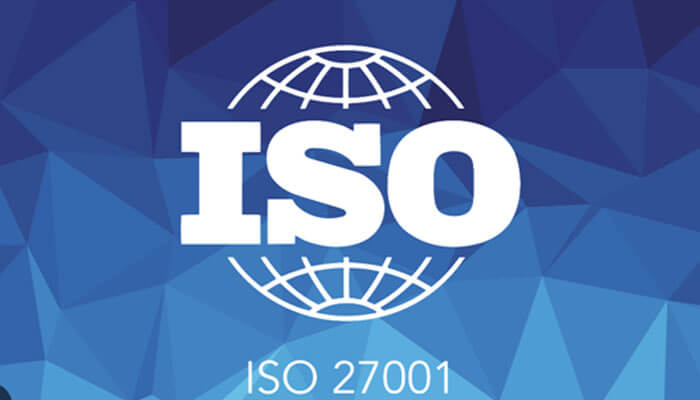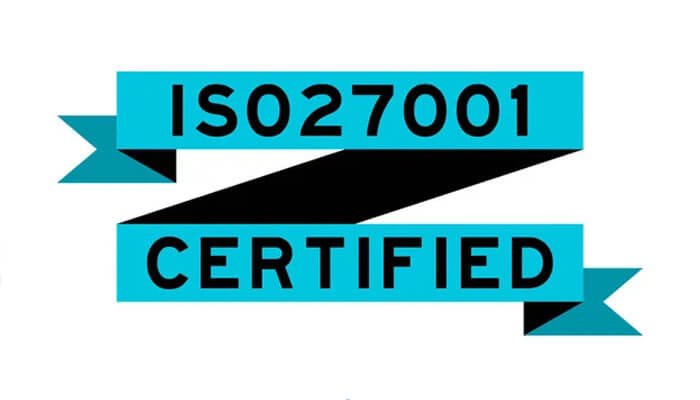ISO 27001 is an information security management standard primarily related to the implementation and maintenance of an information security management system (ISMS). concentrated. It is a joint effort of the International Organization for Standardization (ISO) and the International Electrotechnical Commission (IEC) and is the best-known standard in the ISO/IEC 27000 family.
Unlike other standards and frameworks, compliance with ISO 27001 does not require strict adherence to specific technical controls. Instead, it emphasizes a holistic and proactive approach to security by focusing on enterprise-wide risk management. The standard includes a list of controls in “Appendix A”, but organizations are not required to implement them all. Each organization should apply the appropriate subset of these controls based on its unique risks to its business.
ISO deliberately presents ISO 27001 as an “information security” framework rather than a cybersecurity framework. Authorizations are also important assets and can negatively impact your organization if lost or compromised. Information Security Management System “ISMS” includes policies, procedures, personnel, documents, and controls designed to maintain the confidentiality, integrity, and availability of information. ISO 27001 is the only member of the ISO/IEC 27000 family to which organizations can be certified.
Is ISO 27001 compliance or certification required?
This means that ISO 27001 compliance or certification is not mandatory. Some people mistakenly believe that compliance with ISO 27001 is a legal requirement, but few countries have enacted legislation mandating the implementation of the framework. However, your organization may need to obtain ISO 27001 certification. For example, supplier contracts and procurement policies may require compliance with ISO 27001, especially in sensitive industries such as healthcare and finance.
Additionally, some market sectors expect ISO 27001 certification, even though it is not formally required. For example, Varonis makes all certifications, including ISO 27001, easily accessible on their trust page. This is because enterprise customers looking for data security solutions expect vendors to have the appropriate certifications.
What are the steps to obtain ISO 27001 certification?
Once an organization is prepared to initiate collaboration with an auditor or certification frame for the purpose of obtaining ISO 27001 certification, it embarks on an honestly delineated manner that encompasses three awesome levels, every meticulously designed to manual the organization toward accomplishing and demonstrating compliance with the stringent requirements mentioned within the ISO 27001 standard:
Phase 1:
During the preliminary assessment of her Information Security Management System (ISMS) by using a certification body or outside auditor, various aspects of the corporation’s security protocols and practices are very well evaluated. This vital section enables gauging the effectiveness and adherence of the ISMS to established standards. The findings from this initial evaluation play a pivotal function in determining the readiness of the organization for an extra special Phase 2 audit, which includes deeper scrutiny and an exam to ensure compliance and robustness of the safety measures in the location.
The absence of necessary documentation, insufficient backing from management, or a lack of reliable metrics can all serve as limitations during an ISO 27001 audit technique. These issues may impede the auditors’ ability to assess the organization’s compliance with the standards effectively.
Phase 2:
A thorough audit is conducted to evaluate how an organization applies specific security controls to meet the requirements outlined in the standard. During this phase, the auditor will look for evidence that the organization has done all that was stated in the documents reviewed in Phase 1.
Phase 3:
After formal certification, organizations are required to undergo annual surveillance audits to ensure continued compliance with ISO 27001. These audits are less rigorous than those conducted in Phase 2, but failure to comply with any of the requirements may result in revocation of your ISO 27001 certification before the stated expiration date.
The Ultimate ISO 27001 Pricing Guide for Business Owners! – Sprinto
Tips for maintaining ISO 27001 compliance
One powerful method to ensure comprehensive oversight and preservation of the Information Security Management System (ISMS) is to establish a dedicated stakeholder task force, which can convene on a regular basis to conduct in-depth evaluations of emerging problems and promptly replace the system in reaction to new risks and challenges.
When considering compliance, it is crucial to embed it as more than only a routine project within your every day operations. By seamlessly integrating compliance practices into your company’s normal activities, you could foster a tradition that prioritizes adherence to guidelines and requirements. It is vital to have interaction with senior control continually, from the inception of the compliance software to its ongoing maintenance, as their management and involvement can substantially influence the fulfillment and effectiveness of compliance goals.
An essential factor of maintaining a robust safety infrastructure is to continuously monitor and examine the framework in conjunction with her Information Security Management System (ISMS) in an effort to ensure a dependable security posture. It is vital to thoroughly document any corrective measures that are implemented, as this allows for efficiently tracking the progress and making knowledgeable selections to similarly enhance the overall protection strategy.
It is critical to consistently monitor and evaluate new potential risks, being diligent in identifying and examining any upcoming threats that may arise. Maintaining proactive risk assessment practices will help in effectively managing and mitigating any emerging risks that pose a challenge to the company.
It is crucial to conduct regular internal audits and thorough gap assessments within the organization to proactively identify and rectify any ability discrepancies or problems that may arise during the recertification process. By staying vigilant and addressing these issues promptly, you can effectively mitigate the risk of facing significant administrative challenges when recertification is due.
Conclusion
In summary, working towards ISO 27001 compliance may pose various challenges, such as the extensive documentation and rigorous audits required, but the efforts put into meeting these standards can result in substantial advantages. By successfully attaining ISO 27001 compliance, organizations can greatly enhance their ability to showcase a robust dedication to safeguarding sensitive data and bolster trust with stakeholders, ultimately fortifying their overall data security posture.
In response to the growing concerns of customers, partners, and employees regarding the protection of sensitive information, obtaining certification to standards can significantly enhance an organization’s credibility and trustworthiness. As the demand for ensuring data security continues to rise, compliance with ISO 27001 is seen as a vital step towards safeguarding valuable assets. Should you require assistance with transitioning to ISO 27001, Varonis provides a range of helpful resources, including the innovative tools DatAdvantage and DatAlert, designed to streamline and optimize the certification process for your organization’s benefit.



